Strictly Personal
Umeme, grain and coffee: Why Kenya should fear Uganda’s economic gamble, By Charles Onyango-Obbo
Published
1 year agoon

Uganda, the 1990s shining Africa poster boy for privatisation, is engaging in what could be East Africa’s biggest economic liberalisation reverse gear. Last year, the Uganda government formally announced it would not renew the contract of electricity distributor Umeme in 2025, when its concession expires, and that it will form a state-owned entity to take over its business.
The government’s main criticism of Umeme is its margins are too high, so it has failed to lower electricity costs, and the expensive rates have hobbled Uganda’s industrialisation ambitions. Umeme counters that it is just a distributor, and the high electricity costs are passed on from the power generators.
In two years, the debate will be resolved. Uganda will be in the midst of campaigns ahead of the January 2026 election, when President Yoweri Museveni, weighed down by the wear and tear of 40 years in office, will likely be bidding for a record-shattering ninth term, with his son, Gen Muhoozi Kainerugaba, among those trying to wrestle the crown from his head. It will be the worst possible timing because incumbents rarely make the most enlightened decisions during heated election campaigns. As the West Africans say, there will likely “be a lot of cry.”
Distribution concession
Umeme was formed in 2004 when the government of Uganda granted the distribution concession to a consortium belonging to Globeleq, a subsidiary of the Commonwealth Development Corporation of the UK, which held 56 per cent, and South Africa’s now inept utility corporation Eskom, which had 44 per cent. In 2006 Eskom exited the consortium, and Globeleq became the sole owner of Umeme.
The regional impact could be significant because, among other things, Umeme shares are cross-listed on the Nairobi Securities Exchange. If it unravels, Kenyan shareholders would be left crying in their bowls, and we could be back to the feud over regional assets that followed the break-up of the first East African Community in 1977.
Too messy to swallow
The renationalisation of Umeme will not be unique. Kenya just tried to renationalise cash-haemorrhaging national carrier Kenya Airways but found it too messy to swallow. The recently elected new government of President William Ruto has decided to throw it back on the block.
The difference in Uganda is that Umeme is just the shallow end of the pool. There are other moves to renationalise the very lucrative liberalised coffee sector by granting a near-monopoly to a Vinci Coffee Company, owned by controversial and shadowy Italian “foreign investor” Enrica Pinetti, to process and export Uganda’s coffee. That would take Uganda back to the early 1990s when the disastrous Coffee Marketing Board was disbanded.
A similar move is being made to give the Grain Council of Uganda, on paper a non-profit membership organisation, the kind of sway over the country’s grain last seen in the colonial era.
The force behind the Grain Council is the otherwise amiable president’s younger brother, retired Lt-Gen Salim Saleh (Caleb Akandwanaho), a sly operator who is the second most powerful figure in the land. A nationalist and statist, Saleh has led a quiet but effective assault against laissez-faire liberalisation, which he argues has mostly benefited foreigners and left Ugandans with only holes in their pockets. He has taken over a large chunk of the country’s agricultural budget and several “development” functions under the amorphous state-created vehicle Operation Wealth Creation (OWC) that he heads and inserted disciples in key national economic institutions.
Return to old roots
This state of affairs is a dramatic return to old roots. Uganda launched the first of a series of economic liberalisations in the 1990s that were deemed impossible in Africa at the time and anathema in the hyper-nationalist traditions that were entrenched in post-independence Africa.
It was the first country in Africa to radically liberalise its foreign exchange market and still maintains one of the least-interventionist approaches to the money market on the continent. It was also the first in East Africa to pass laws that gave the central bank extensive independence.
It was the first on the continent in the early 1990s to liberalise the fuel market and scrap fuel subsidies. Again, in East Africa, at least, it is the government that meddles least in setting the price of gas at the pump. When fuel prices skyrocketed everywhere following the Russian invasion of Ukraine last year, it alone was the East African government to flatly refuse to even consider a fuel subsidy and price cap, as all the rest of the EAC states did.
Price of food
Uganda, too, is the country where the price of food is most considered none of the government’s business. When Ugandans read stories and political fights over maize in Kenya, and the government setting the price, to some of them, it sounds like a tale about an alien planet.
The country and economy that Uganda is today are about to change. Some of the changes have to do with the politics of the Museveni succession and how the family and vested interests that have coalesced around the State House view their future security. A lot of it, though, is because of some good things: the rebirth of the EAC; the end of the wars in Uganda and the ushering in of the country’s longest spell of peace; the rebound of a post-KANU Kenya; and the Rwanda post-genocide recovery.
If there are two people in East Africa outside Uganda, who have edged Uganda to the fork in the road where it is today, they are Rwanda’s President Paul Kagame and former Kenya president Mwai Kibaki.
The author is a journalist, writer, and curator of the «Wall of Great Africans». Twitter@cobbo3
You may like
-


This Sudan war is too senseless; time we ended it, By Tee Ngugi
-


RepAir, Cella partner to launch carbon capture in Kenya
-


IMF predicts Kenya’s economy to overtake Angola
-


Kenya’s Peres Jepchirchir fulfils promise of breaking world record at London Marathon
-
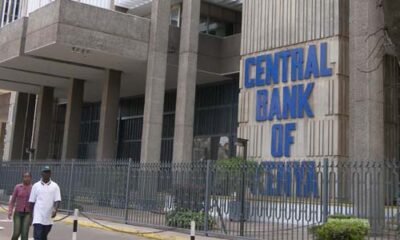

Investors’ wealth drops by $968 million on Nairobi Securities Exchange
-


Air Peace, capitalism and national interest, By Dakuku Peterside
Strictly Personal
This Sudan war is too senseless; time we ended it, By Tee Ngugi
Published
1 day agoon
April 28, 2024
Why are the Sudanese Armed Forces (SAF) and the paramilitary Rapid Support Forces (RPF) engaged in a vicious struggle? It is not that they have ideological, religious or cultural differences.
Not that people should fight because of these kinds of differences, but we live in a world where social constructions often lead to war and genocide. It is not that either side is fighting to protect democracy. Both sides were instruments of the rapacious dictatorship of Omar el-Bashir, who was overthrown in 2019.
Both are linked to the massacres in Darfur during Bashir’s rule that led to his indictment by the International Criminal Court for crimes against humanity. They both stood by as ordinary, unarmed people took to the streets and forced the removal of the Bashir regime.
None of these entities now fighting to the last Sudanese citizen has any moral authority or constitutional legitimacy to claim power. They both should have been disbanded or fundamentally reformed after the ouster of Bashir.
The SAF and the RSF are fighting to take over power and resources and continue the repression and plunder of the regime they had supported for so long. And, as you can see from news broadcasts, they are both well-versed in violence and plunder.
Since the fighting began in 2023, both sides have been accused of massacres that have left more than 30,000 people dead. Their fighting has displaced close to 10 million people. Their scramble for power has created Sudan’s worst hunger crisis in decades. Millions of refugees have fled into Chad, Ethiopia and South Sudan.
The three countries are dubious places of refuge. Chad is a poor country because of misrule. It also experiences jihadist violence. Ethiopia is still simmering with tensions after a deadly inter-ethnic war.
And South Sudan has never recovered from a deadly ethnic competition for power and resources. African refugees fleeing to countries from which refugees recently fled or continue to flee sums up Africa’s unending crisis of governance.
Africa will continue to suffer these kinds of power struggles, state failure and breakdown of constitutional order until we take strengthening and depersonalising our institutions as a life and death issue. These institutions anchor constitutional order and democratic process.
Strong independent institutions would ensure the continuity of the constitutional order after the president leaves office. As it is, presidents systematically weaken institutions by putting sycophants and incompetent morons in charge. Thus when he leaves office by way of death, ouster or retirement, there is institutional collapse leading to chaos, power struggles and violence. The African Union pretends crises such as the one in Sudan are unfortunate abnormally. However, they are systemic and predictable. Corrupt dictatorships end in chaos and violence.
Tee Ngugi is a Nairobi-based political commentator.
Strictly Personal
Air Peace, capitalism and national interest, By Dakuku Peterside
Published
2 weeks agoon
April 16, 2024
Nigerian corporate influence and that of the West continue to collide. The rationale is straightforward: whereas corporate activity in Europe and America is part of their larger local and foreign policy engagement, privately owned enterprises in Nigeria or commercial interests are not part of Nigeria’s foreign policy ecosystem, neither is there a strong culture of government support for privately owned enterprises’ expansion locally and internationally.
The relationship between Nigerian businesses and foreign policy is important to the national interest. When backing domestic Nigerian companies to compete on a worldwide scale, the government should see it as a lever to drive foreign policy, and national strategic interest, promote trade, enhance national security considerations, and minimize distortion in the domestic market as the foreign airlines were doing, boost GDP, create employment opportunities, and optimize corporate returns for the firms.
Admitted nations do not always interfere directly in their companies’ business and commercial dealings, and there are always exceptions. I can cite two areas of exception: military sales by companies because of their strategic implications and are, therefore, part of foreign and diplomatic policy and processes. The second is where the products or routes of a company have implications for foreign policy. Air Peace falls into the second category in the Lagos – London route.
Two events demonstrate an emerging trend that, if not checked, will disincentivize Nigerian firms from competing in the global marketplace. There are other notable examples, but I am using these two examples because they are very recent and ongoing, and they are typological representations of the need for Nigerian government backing and support for local companies that are playing in a very competitive international market dominated by big foreign companies whose governments are using all forms of foreign policies and diplomacy to support and sustain.
The first is Air Peace. It is the only Nigerian-owned aviation company playing globally and checkmating the dominance of foreign airlines. The most recent advance is the commencement of flights on the Lagos – London route. In Nigeria, foreign airlines are well-established and accustomed to a lack of rivalry, yet a free-market economy depends on the existence of competition. Nigeria has significantly larger airline profits per passenger than other comparable African nations. Insufficient competition has resulted in high ticket costs and poor service quality. It is precisely this jinx that Air Peace is attempting to break.
On March 30, 2024, Air Peace reciprocated the lopsided Bilateral Air Service Agreement, BASA, between Nigeria and the United Kingdom when the local airline began direct flight operations from Lagos to Gatwick Airport in London. This elicited several reactions from foreign airlines backed by their various sovereigns because of their strategic interest. A critical response is the commencement of a price war. Before the Air Peace entry, the price of international flight tickets on the Lagos-London route had soared to as much as N3.5 million for the economy ticket. However, after Air Peace introduced a return economy class ticket priced at N1.2 million, foreign carriers like British Airways, Virgin Atlantic, and Qatar Airways reduced their fares significantly to remain competitive.
In a price war, there is little the government can do. In an open-market competitive situation such as this, our government must not act in a manner that suggests it is antagonistic to foreign players and competitors. There must be an appearance of a level playing field. However, government owes Air Peace protection against foreign competitors backed by their home governments. This is in the overall interest of the Nigerian consumer of goods and services. Competition history in the airspace works where the Consumer Protection Authority in the host country is active. This is almost absent in Nigeria and it is a reason why foreign airlines have been arbitrary in pricing their tickets. Nigerian consumers are often at the mercy of these foreign firms who lack any vista of patriotism and are more inclined to protect the national interest of their governments and countries.
It would not be too much to expect Nigerian companies playing globally to benefit from the protection of the Nigerian government to limit influence peddling by foreign-owned companies. The success of Air Peace should enable a more competitive and sustainable market, allowing domestic players to grow their network and propel Nigeria to the forefront of international aviation.
The second is Proforce, a Nigerian-owned military hardware manufacturing firm active in Rwanda, Chad, Mali, Ghana, Niger, Burkina Faso, and South Sudan. Despite the growing capacity of Proforce in military hardware manufacturing, Nigeria entered two lopsided arrangements with two UAE firms to supply military equipment worth billions of dollars , respectively. Both deals are backed by the UAE government but executed by UAE firms.
These deals on a more extensive web are not unconnected with UAE’s national strategic interest. In pursuit of its strategic national interest, India is pushing Indian firms to supply military equipment to Nigeria. The Nigerian defence equipment market has seen weaker indigenous competitors driven out due to the combination of local manufacturers’ lack of competitive capacity and government patronage of Asian, European, and US firms in the defence equipment manufacturing sector. This is a misnomer and needs to be corrected.
Not only should our government be the primary customer of this firm if its products meet international standards, but it should also support and protect it from the harsh competitive realities of a challenging but strategic market directly linked to our national military procurement ecosystem. The ability to produce military hardware locally is significant to our defence strategy.
This firm and similar companies playing in this strategic defence area must be considered strategic and have a considerable place in Nigeria’s foreign policy calculations. Protecting Nigeria’s interests is the primary reason for our engagement in global diplomacy. The government must deliberately balance national interest with capacity and competence in military hardware purchases. It will not be too much to ask these foreign firms to partner with local companies so we can embed the technology transfer advantages.
Our government must create an environment that enables our local companies to compete globally and ply their trades in various countries. It should be part of the government’s overall economic, strategic growth agenda to identify areas or sectors in which Nigerian companies have a competitive advantage, especially in the sub-region and across Africa and support the companies in these sectors to advance and grow to dominate in the African region with a view to competing globally. Government support in the form of incentives such as competitive grants ,tax credit for consumers ,low-interest capital, patronage, G2G business, operational support, and diplomatic lobbying, amongst others, will alter the competitive landscape. Governments and key government agencies in the west retain the services of lobbying firms in pursuit of its strategic interest.
Nigerian firms’ competitiveness on a global scale can only be enhanced by the support of the Nigerian government. Foreign policy interests should be a key driver of Nigerian trade agreements. How does the Nigerian government support private companies to grow and compete globally? Is it intentionally mapping out growth areas and creating opportunities for Nigerian firms to maximize their potential? Is the government at the domestic level removing bottlenecks and impediments to private company growth, allowing a level playing field for these companies to compete with international companies?
Why is the government patronising foreign firms against local firms if their products are of similar value? Why are Nigerian consumers left to the hands of international companies in some sectors without the government actively supporting the growth of local firms to compete in those sectors? These questions merit honest answers. Nigerian national interest must be the driving factor for our foreign policies, which must cover the private sector, just as is the case with most developed countries. The new global capitalism is not a product of accident or chance; the government has choreographed and shaped it by using foreign policies to support and protect local firms competing globally. Nigeria must learn to do the same to build a strong economy with more jobs.
EDITOR’S PICK
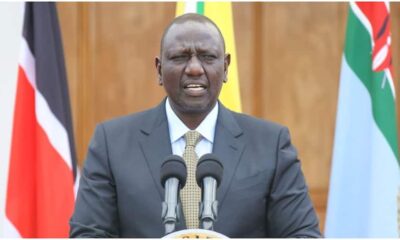

African leaders want record World Bank financing to address climate change
Ahead of a World Bank conference scheduled for later this year, African leaders on Monday called for rich countries to...
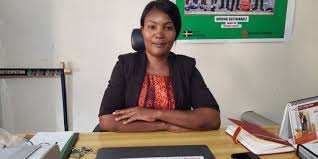

Conservationist, Kearns, names intolerance and digital media abuse as threats to media freedom
Nsama Kearns, the Executive Director of Care for Nature, speaks on the indispensable role of a free media in society....
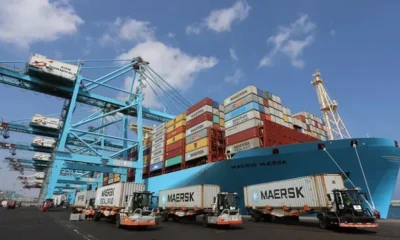

Nigeria gets $600 million investment from Danish firm Moller-Maersk
Nigeria’s presidency said on Sunday that President Bola Tinubu had secured an investment of $600 million from Danish shipping and...


Bolt Kenya teams up with M-KOPA to launch electric motorcycles
In a bid to improve driver earnings and combat climate change, ride-hailing platform, Bolt Kenya, has struck a partnership with...
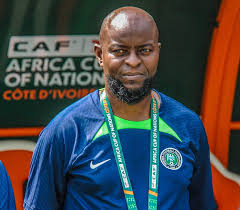

Nigeria’s football federation appoints Finidi George as Super Eagles coach
The Nigeria Football Federation (NFF) has approved the appointment of former international, Finidi George, as the new head coach of...
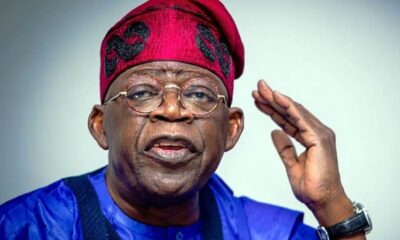

I saved Nigeria from bankruptcy by removing fuel subsidy— Tinubu
Nigerian President, Bola Tinubu, on Sunday, boasted that he saved Nigeria from going bankrupt by removing fuel subsidy on his...


Behind the News: All the backstories to our major news this week
Over the past week, there were lots of important stories from around the African continent, and we served you some...
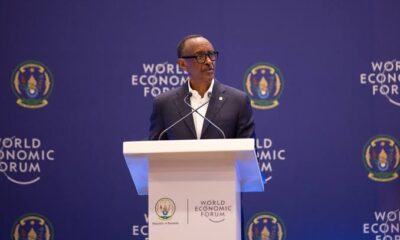

Video: How Rwanda is driving Ai revolution in Africa
In this video, the Managing Director of Rwanda’s Centre for the Fourth Industrial Revolution, Crystal Rugege, speaks on the country’s...


This Sudan war is too senseless; time we ended it, By Tee Ngugi
Why are the Sudanese Armed Forces (SAF) and the paramilitary Rapid Support Forces (RPF) engaged in a vicious struggle? It...
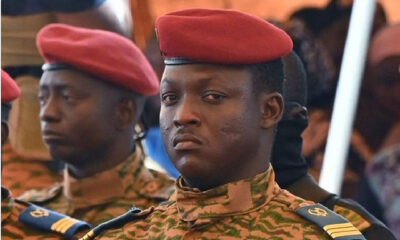

Burkina Faso investigating reports of northern killings
A government spokesman has revealed that Burkina Faso is looking into reports that 223 people were killed by the Burkinabe...
Trending
-

 Behind the News1 day ago
Behind the News1 day agoBehind the News: All the backstories to our major news this week
-

 Politics1 day ago
Politics1 day agoBurkina Faso investigating reports of northern killings
-
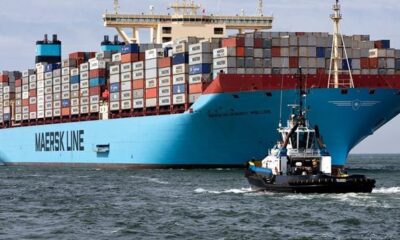
 Musings From Abroad2 days ago
Musings From Abroad2 days agoNigeria loses $9.2 billion to foreign shipowners
-
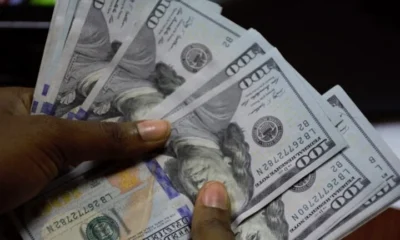
 VenturesNow1 day ago
VenturesNow1 day agoNigeria: Bureaux De Change operators to harmonise retail FX market


